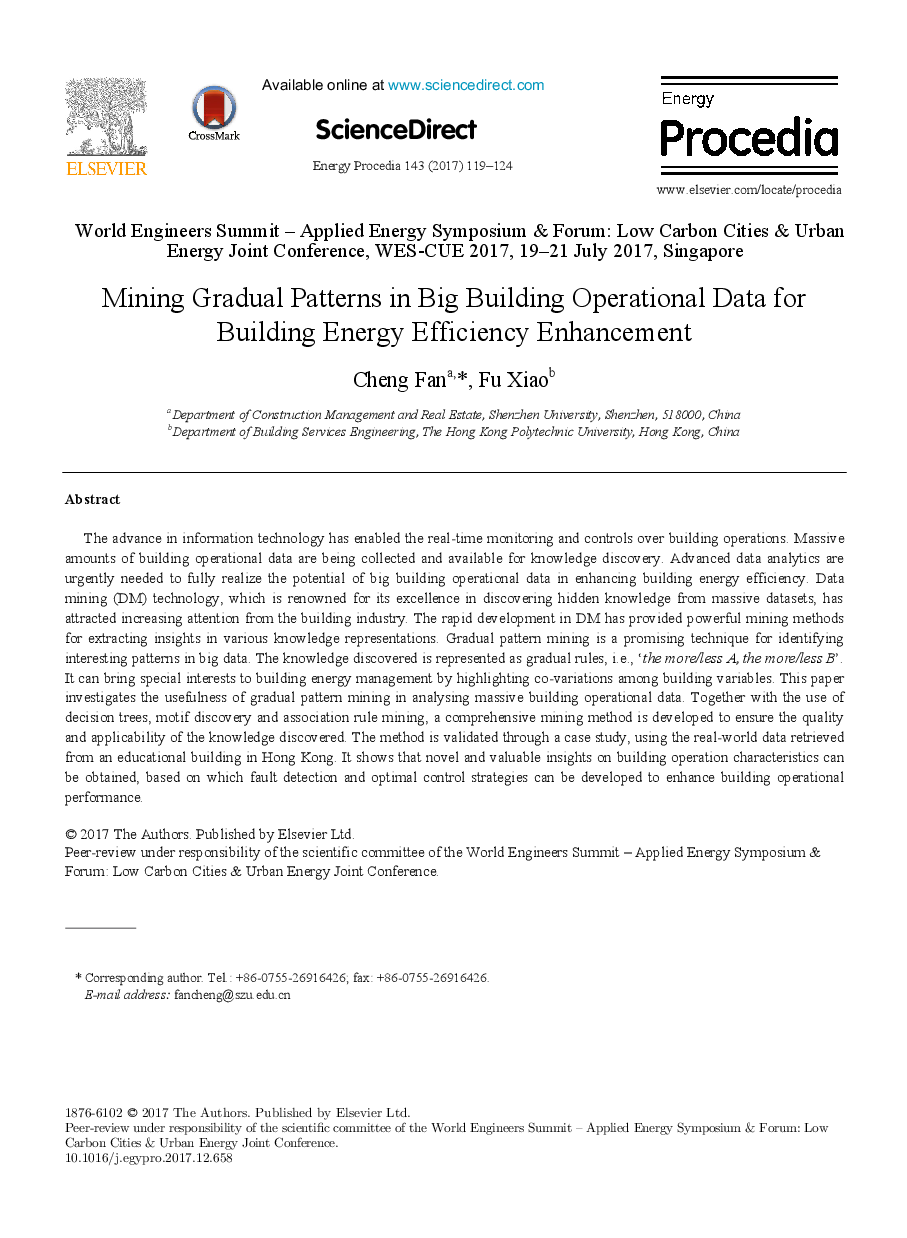ترجمه فارسی عنوان مقاله
الگوهای تدریجی معدن در داده های عملیاتی بزرگ برای افزایش کارایی انرژی ساختمان
عنوان انگلیسی
Mining Gradual Patterns in Big Building Operational Data for Building Energy Efficiency Enhancement
| کد مقاله | سال انتشار | تعداد صفحات مقاله انگلیسی |
|---|---|---|
| 107948 | 2017 | 6 صفحه PDF |
منبع

Publisher : Elsevier - Science Direct (الزویر - ساینس دایرکت)
Journal : Energy Procedia, Volume 143, December 2017, Pages 119-124
ترجمه کلمات کلیدی
معدن گام به گام داده کاوی، دانش کشف، ایجاد عملکرد عملیاتی، بهره وری انرژی ساختمان،
کلمات کلیدی انگلیسی
Gradual pattern mining; Data mining; Knowledge discover; Building operational performance; Building energy efficiency;

